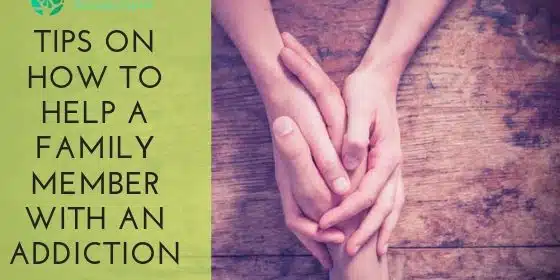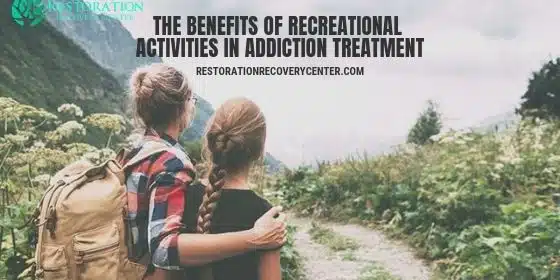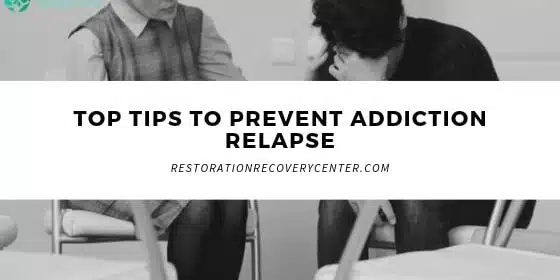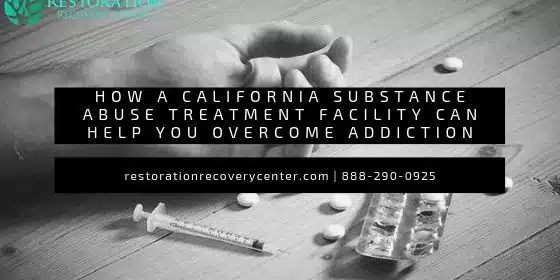The Link Between HIV/AIDS and Depression
Once diagnosed with a sexually transmitted disease, an individual may feel their dating life may be significantly limited. HIV, left untreated, can turn into AIDS. An infected individual may develop depression over time due to the fact there is no known cure available today. Treatments may interfere with their daily routine as well. Therefore, an individual may feel very overwhelmed. Some individuals may even develop anxiety as they may constantly worry about their disease progression. Moving forward with Restoration Recovery can significantly improve an individual’s quality of life with HIV/AIDS and depression. Our California Holistic Rehab program can help individuals better understand their condition and address the emotional difficulties related to their illness.
What Is HIV/AIDS?
According to HIV.gov, human immunodeficiency virus (HIV) is a virus that aggressively attacks CD4 cells, which makes it very difficult for an individual’s body to effectively fight an infection. Therefore, the individual is more vulnerable to contracting other infectious diseases. The virus is easily contracted through the spread of bodily fluids with another person who has the disease. HIV is commonly spread through unprotected sex or through sharing needles.
The condition can manifest (late stage of HIV) into acquired immunodeficiency syndrome (AIDS). HIV/AIDS is a lifelong condition that affects many different individuals worldwide. Individuals who take antiretroviral therapy (ART) can decrease the concentration of HIV in their blood (viral load) to a significantly reduced level. Thus, having an undetectable viral load will not transmit HIV to another person.
Link Between HIV/AIDS and One’s Mental Health
Although individuals with HIV who take viral suppressive medication as prescribed continue to live a healthy lifestyle, they are still at an increased risk of developing a mental illness called depression. HIV has been clinically known to negatively affect an individual’s nervous system. Therefore, an individual’s thought patterns and behavior may be altered. Some medications used to treat HIV can affect an individual’s mental health. The condition can be a major source of intense stress. As stated by a separate HIV.gov study, certain situations may negatively interfere with an individual’s mental health as well. For example, an individual with HIV/AIDS may experience challenges with:
- Coming forward about their condition
- Managing the treatment of HIV
- Facing discrimination and hurtful stigma
HIV/AIDS and Depression Symptoms
It is important for an individual to appropriately manage their psychological, emotional, and social well-being to live their life to the fullest. Many individuals with HIV commonly face problems with depression. Depressive symptoms can typically range from mild to moderate to severe. Depression can also negatively impact an individual’s day-to-day routines. These symptoms may consist of:
- Feeling anxious or sad a majority of the time
- Avoiding activities that once were enjoyable
- Feeling restless, irritable, or easily frustrated
- Experiencing difficulty falling asleep or staying well-rested
- Sleeping too much or waking too early
- Having no appetite or eating too much
- Experiencing physical ailments that do not improve with treatment
- Having difficulty concentrating and making important decisions
- Experiencing suicidal thoughts or feelings of hurting oneself
Self-Help Strategies to Improve HIV/AIDS and Depression
If one lives with HIV/AIDS, it is imperative to manage their mental health along with their physical health. Self-care is a critical part of staying healthy with HIV/AIDS and depression. Bringing the tools learned in treatment and consistently using them can significantly improve an individual’s state of mental health. Accepting support from family, friends, and loved ones can make one’s journey a more comfortable experience. Practicing a healthy self-care routine can help one effectively manage the challenges associated with their dual diagnosis. Self-help strategies that may help one improve HIV/AIDS and depression may include:
- Exercising daily and staying active to produce endorphins
- Eating nutritious foods
- Joining a support group
- Going to bed at the same time every day
- Partaking in sober activities
- Practicing mindfulness and meditation
- Staying in touch with loved ones
The Importance of Surrendering to Treatment
Some individuals may feel hesitant to move forward with treatment for their HIV/AIDS and depression. This can be due to the fact it is a very personal condition to discuss. Many individuals may feel deep shame as it is a preventative disease to contract. The stigma can make one feel strongly discouraged to surrender to treatment. Although this may be true, surrendering to professional care can relieve one’s feelings of intense embarrassment and help one accept their condition for what it is. Treatment can help one find the direction needed to safely cope with their condition without self-medicating with drugs or alcohol.
Moving Forward With Restoration Recovery for HIV/AIDS and Depression
Using self-help strategies in combination with California holistic rehab at Restoration Recovery can greatly improve an individual’s overall well-being. The benefits of holistic rehab can significantly reduce depression related to HIV/AIDS. With consistent care, an individual may experience eased insomnia, reduced stress levels, and an overall improved mood. Restoration Recovery’s holistic rehab modalities can help treat a variety of mental health conditions such as depression, anxiety, and emotional difficulties related to HIV/AIDS. Different holistic therapy options that can facilitate self-care may include:
- Yoga and meditation
- Nutrition lessons
- Relaxation
- Dance/movement therapy
- Art therapy
- Spiritual growth and development
At our California recovery center, our serene setting helps clients achieve not just wellness, but wholeness. Rather than just treating the disease, holistic treatment looks at a person as a whole and introduces healing to other aspects of a person. It is important to note that although helpful, holistic services should not take the place of traditional medicine and behavioral therapy in addiction treatment. Many holistic therapies are rooted in bodywork and mindfulness practices. Individuals can choose to partake in holistic services at Restoration Recovery in a variety of programs to aid emotional difficulties related to HIV/AIDS and depression. If you or a loved one are having difficulty coping with HIV/AIDS, call (888) 290-0925 to learn more.






